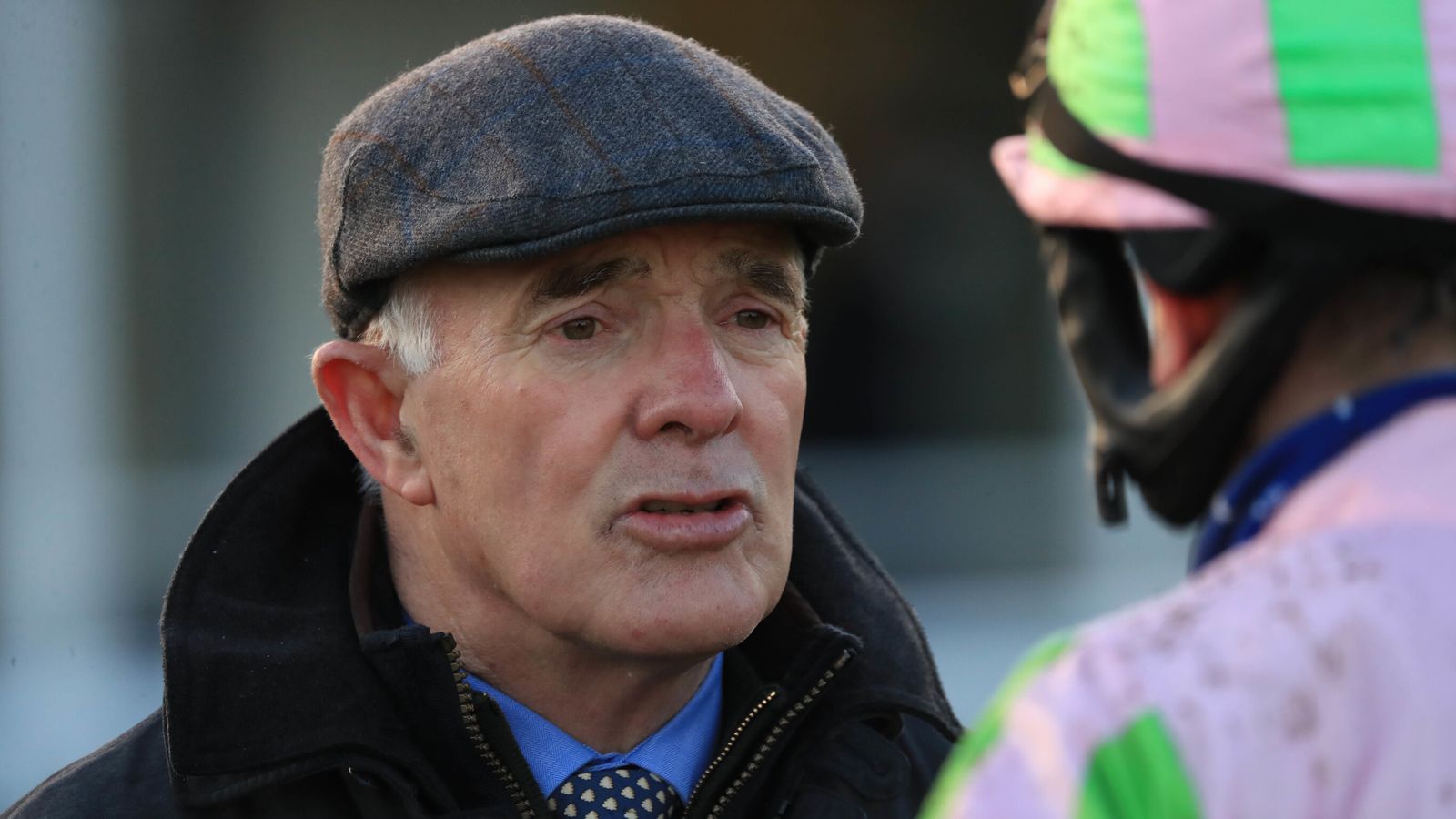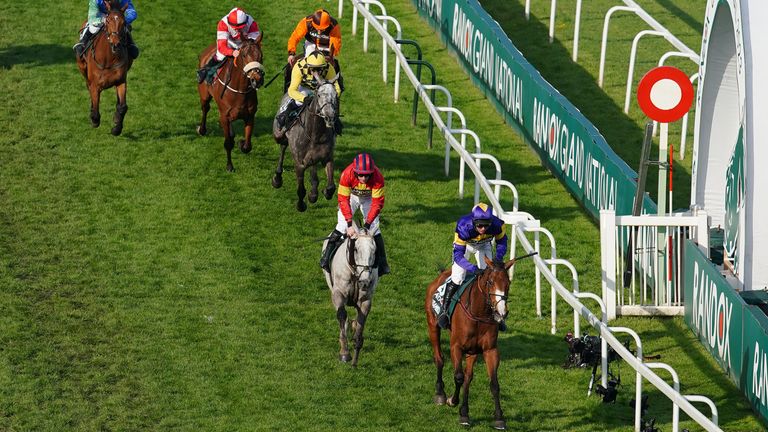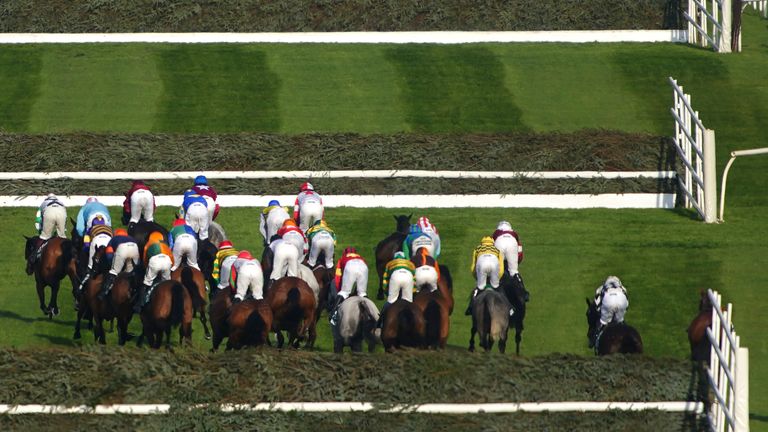Grand National-winning trainer Ted Walsh says today’s changes to the Aintree showpiece race is just the next step in the abolition of jump racing.
Racing’s most famous contest will be reduced from 40 runners to 34 from next year as part of a focus on horse welfare.
Other safety changes include moving the first obstacle 60 yards closer to the start and implementing a standing start, while alterations to the alignment of the running rail on the inside of the course will assist with the early capture of loose horses and reduce fence 11 by two inches.
Grand National runner Hill Sixteen died after sustaining an injury in this year’s race, leading to criticism from animal rights activists Animal Aid, with the race was also targeted by protesters from the group Animal Rising, some of whom entered the track and caused a delay to the start time.
The Jockey Club, which runs Aintree racecourse, has announced a series of changes, supported by the British Horseracing Authority (BHA), as part of the “continued evolution” of the race.
But Irish trainer Walsh – winner of the race in 2001 with Papillon – has criticised the decision, describing the move as another step in the direction of the abolition of jump racing in the UK.
“It’s only a continuation of what has been happening in England for the last 20 years,” Walsh told Sky Sports Racing.
“The animal welfare groups are gathering more momentum and the Jockey Club are slowly giving in and are on the back foot.
“They have to appease those people to allow a race like the Grand National to continue but it is what it is and this is another step in the abolition of jump racing as we know it.
“I got one ride in the Grand National and didn’t get that far. When I was growing up, it was an achievement to get a ride in the National and even bigger to get round in the National.
“If your horse is any way adaptable to jumping now, you’ll get around. It used to be a bit special but now I don’t think it is.
“Horse racing is a dangerous sport for the jockeys and participants and it was exciting and that’s a part of the attraction.
“All around the world the National is a famous race and other jurisdictions tried to copy it, everyone had a National.
“But they all tried to take the name from the great race it was, but it’s no longer that elusive sort of a race.
“Like many things in the world, things have changed and racing has to change with them or it’ll become extinct altogether.”
Sulekha Varma, The Jockey Club’s North West head of racing and clerk of the course at Aintree, led the review process and said: “The welfare of our racehorses and jockeys is our number one priority at Aintree and we have invested significantly in equine welfare over many years.
“We continually review the Grand National and following an in-depth, evidence-based review process this year, we are announcing several changes as part of its continued evolution.”
Addressing the reduction in field size, Varma added: “We know from research papers and internal analysis of jump races that there is a direct correlation between the number of runners and the risk of falling, unseating or being brought down.
“However, we also must consider that reducing the field size by too great a number could create a faster race and have an adverse impact in terms of safety.”



